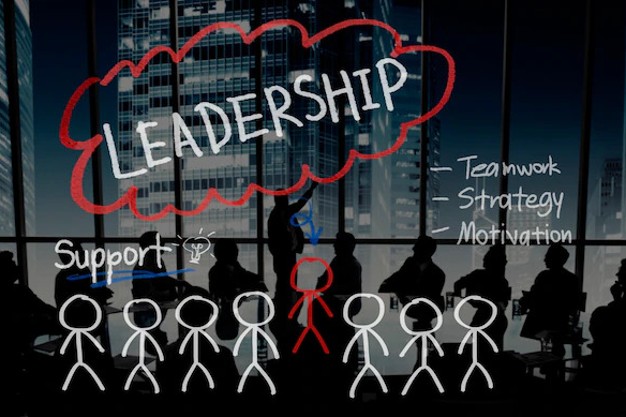How an MBA Enhances Leadership Skills
Listen to this Article

Discover how an MBA, particularly an Executive MBA in Leadership, can equip individuals with the skills needed to excel as leaders in today's ever-changing business landscape. Explore the qualities of effective leaders and learn how an MBA program enhances crucial leadership abilities.
In an era characterized by constant change and uncertainty, organizations require strong leaders who can effectively navigate challenges. The demand for leaders who possess strategic thinking, effective communication, and motivational prowess has never been higher. This is where an MBA, specifically an Executive MBA in Leadership, can play a pivotal role in cultivating and refining these essential skills.
The Increasing Importance of Leadership:
Leadership has become increasingly crucial due to a variety of factors. The world is growing more complex, demanding organizations to enhance their effectiveness and efficiency. Moreover, individuals are seeking more information and involvement in decisions affecting their lives. These circumstances create a pressing need for leaders who can navigate complexity and inspire others to reach their full potential. If you aspire to lead, the 21st century offers an opportune time to shine.
Defining Leadership:
Leadership entails guiding a group of individuals or an organization. Effective leadership necessitates empathy, understanding, courage, confidence, and a willingness to take risks and confront challenges. In a business context, leadership is a vital function that directs an organization's resources toward activities that enhance efficiency and contribute to achieving business goals.
Qualities of an Effective Leader:
Exceptional leaders create inspiring visions, motivate and engage people, and provide them with a sense of purpose. They ensure that the vision is delivered in a manner that benefits both the business and its people. To truly comprehend the essence of leadership, let's explore the top ten qualities businesses expect from their leaders:
- Vision
- Inspiration
- Strategic thinking
- Critical thinking
- Communication abilities
- Self-awareness
- Creativity
- Adaptability
- Dependability
- Accountability
While these qualities are sought after in leaders, they are also highly desirable in employees at all levels. Individuals possessing these skills are more likely to be entrusted with greater responsibilities. An MBA program with a leadership focus provides the necessary coursework to develop and nurture these qualities.
The Impact of an MBA on Leadership:
An MBA in Leadership, when delivered effectively, enhances all the aforementioned areas. Let's examine how an MBA program specializing in leadership positively impacts leadership skills:
1. Enhances Communication Prowess:
Through an MBA program, students learn to effectively utilize business language. This knowledge, coupled with practical implementation through assignments, presentations, group discussions, and debates, boosts confidence and improves communication skills.
2. Crisis Resolution:
Leaders must possess the ability to resolve issues, crises, and challenging situations promptly. MBA programs incorporate projects such as Capstone business simulations, use cases, and competitions that expose students to real-life business problems. These experiences foster the development of strong problem-solving abilities and leadership qualities.
3. Decision-Making:
The capacity to make accurate, data-driven, and intelligent decisions is indispensable for effective leadership. Whether it involves determining client discounts or selecting the right team members for a project, leaders must make quick decisions that yield positive outcomes. An Executive MBA equips students with the necessary knowledge, analytics understanding, and vision to comprehend the impact of their decisions.
4. Teamwork:
Collaboration and an understanding of individual strengths within a team are crucial leadership traits. Post-MBA, students possess the skills required to achieve organizational objectives while appreciating how different skill sets complement one another, including their own. The effective utilization of diverse skills and knowledge becomes a hallmark of successful leadership.
5. Innovation:
Leadership involves not only generating innovative and creative ideas but also recognizing innovation in others and leveraging it for business benefit. Moreover, leaders must know when and how to implement innovation swiftly to achieve optimal results.
In conclusion, pursuing an MBA, particularly with a specialization in leadership, can significantly enhance an individual's leadership skills. The coursework and practical experiences provided in an MBA program contribute to improved communication, crisis resolution, decision-making, teamwork, and innovation abilities. As the demand for effective leaders continues to grow, an MBA can serve as a valuable asset in meeting the challenges of the dynamic business environment.
Hence by pursuing MBA program, students can elevate their skills, apply the latest management theories and practices, and build a network of like-minded professionals while maintaining their careers. The program equips individuals to progress to more strategic roles, providing them with an end-to-end view of the enterprise, cross-functional skills, and an in-depth understanding of Leadership and Management.
Also read: Essential Knowledge for Insurance Managers
Back to All Educational Tips and Tricks, Articles, Resources
Share This:
To Know More About Executive MBA Colleges in Mumbai Visit Edgrade.com Contact us at 9930011452 or email us on info@edgrade.com
Source: online.nmims.edu
